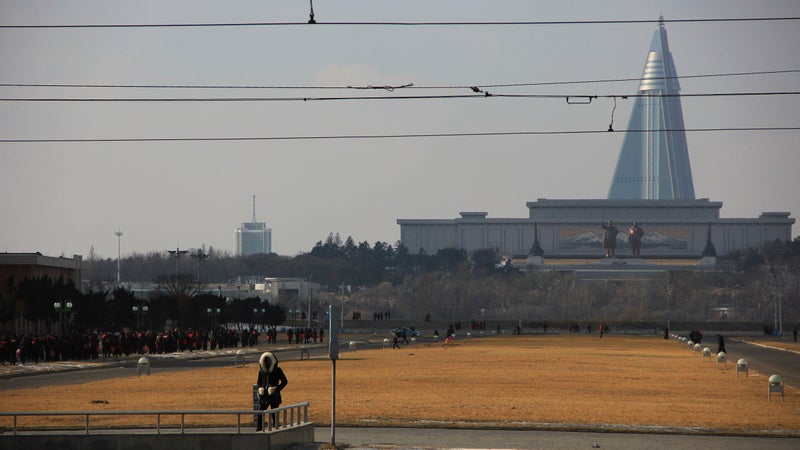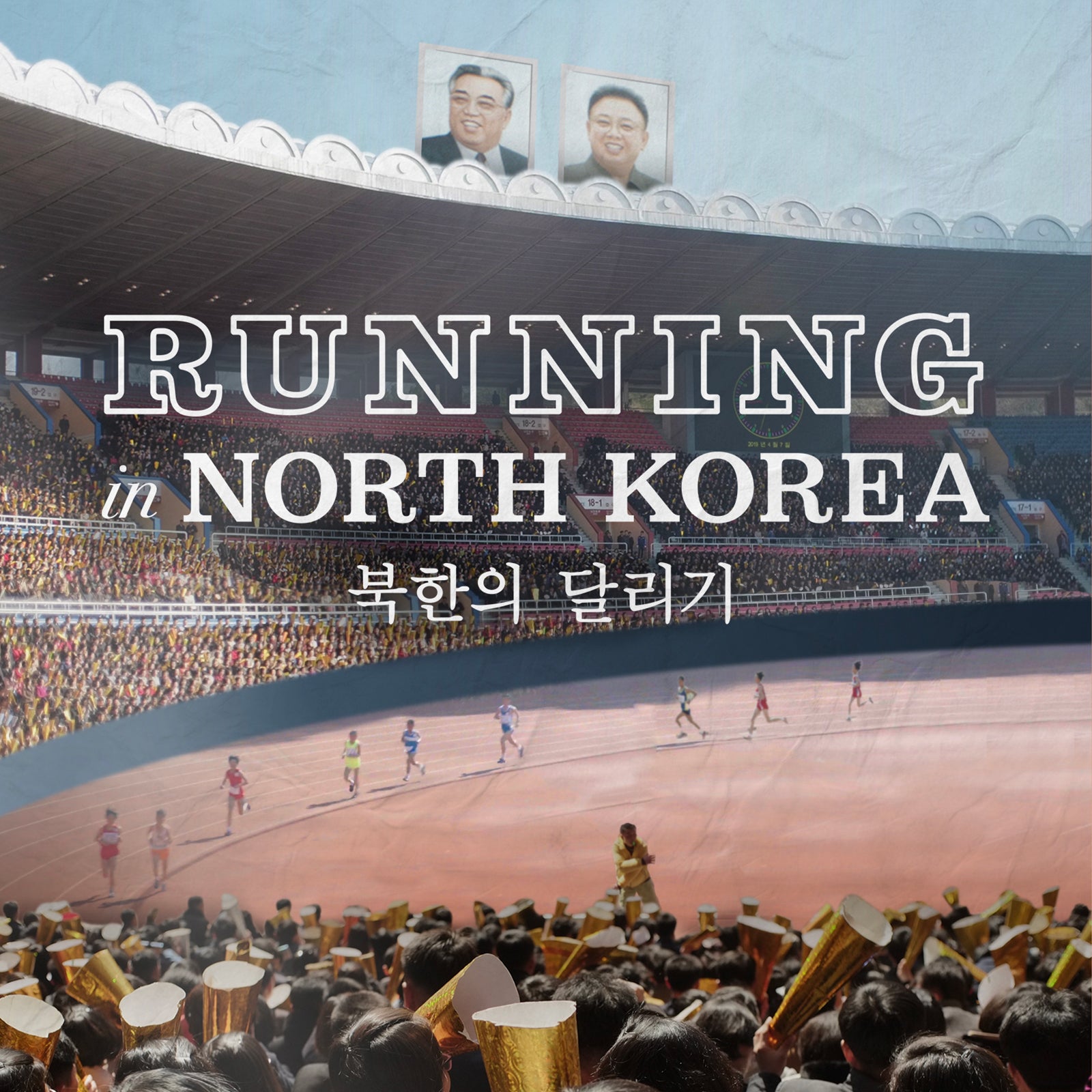On April 12, 2019, about��50,000 people dressed in dark jackets packed Kim Il-sung Stadium in North Korea’s capital for . The sea of spectators clapped with short wooden planks in a well-rehearsed rhythm, and conductors at the front of the bleachers guided the crowd to raise gold cones distributed beforehand. Down on the field, coaches ordered the North Korean��marathon athletes to “stand up straight” during the flag-raising ceremony and��not “stare at foreigners.” The race��is the only event in the country that’s open to foreign contestants, and it attracts some 1,000 runners from 58 countries in addition to its 600 North Korean participants.
Among the outside��entrants��were��, the��British snowboarder and two-time Olympian, and , a retired Olympic freestyle skier and X Games��medalist from Switzerland.��“Arriving in the stadium, it almost felt as if I was at the Olympic opening ceremony,” Fuller says. She and Jaeger are subjects of , which premieres��on September 24 on the Olympic Channel and ��and��follows the two athletes over the course of the week they spent in��Pyongyang in the lead-up to��the race.
The film’s director, , has worked on everything from a National Geographic television series about to��Bear Grylls’s survival show Man vs. Wild.��But he had never encountered anything quite like filming in a country like this one. Before arriving, he researched other documentaries made in North Korea and talked to friends who had been there, but it was difficult to find much information about what to expect other than having��no cell service, being��chaperoned everywhere, and getting your hotel phone wiretapped.
Things went better than expected. As the film chronicles, the crew was granted unparalleled access to explore sports facilities and chat with the nation’s��most decorated athletes. Fuller and Jaeger met Olympic medalists and world champions in weight lifting, table tennis, gymnastics, and the marathon; all of them were handpicked at a very early age, after which they ate, lived, and breathed sports. Their coaches��instilled in them��the faith that their athletic prowess would one day bring praise and glory to the country. After winning global competitions, some North Korean athletes were gifted��luxury apartments and limousines, while��others earned high political status,��becoming delegates of the Supreme People’s Assembly, the country’s rubber-stamp legislative body. The Kim family praises��medal winners, and��North Koreans treat those athletes like rock stars.

Fuller and Jaeger’s��time in North Korea is predictably strange. During a warm-up run on the streets of Pyongyang, Fuller tries to interact with curious pedestrians, but a car is following her the whole time. Since Jaeger isn’t allowed to go anywhere on her own, she completes her training in a labyrinth of corridors in the hotel where��she is staying. A day before the marathon, while the crew is gobbling spicy tofu in the hotel’s restaurant, the power��suddenly cuts out; apparently,��too many foreigners (mostly Pyongyang Marathon participants)��were using their digital devices, which��overloaded the hotel’s electrical system.
After being shepherded from place to place for six days, Fuller is finally set free��by the race’s��starting gun. The marathon’s course follows the Taedong River and passes everything from Kim Il-sung Square to residential neighborhoods. During the four and a half hours she takes to complete the race, Fuller at last��can interact with the locals cheering them on. And so does Jaeger, who competed in the 10K race. “There are two parts in my head: one is telling me, ‘Hey, the things you’ve read about this country are not true,’” Jaeger says in the film. “On the other hand, I’m seeing a lot of [miserable] things.”
Ultimately, though, the film��shows that even in the most isolated and secretive places, sports can be a unifying language that humanizes and brings people together.


